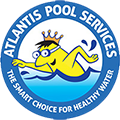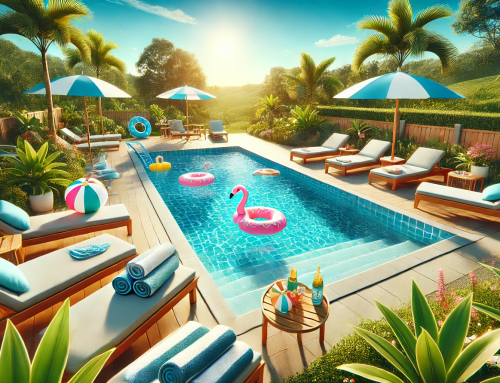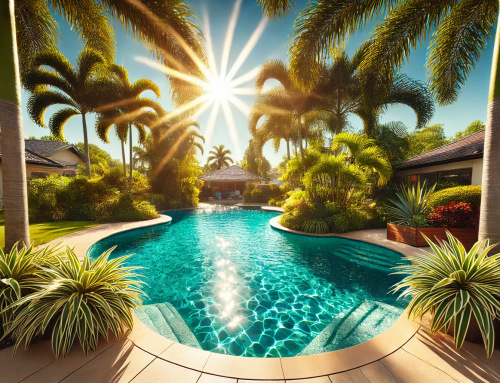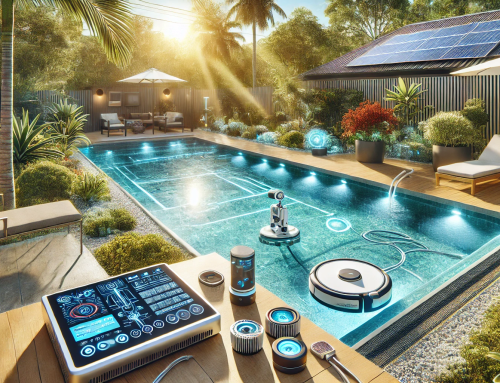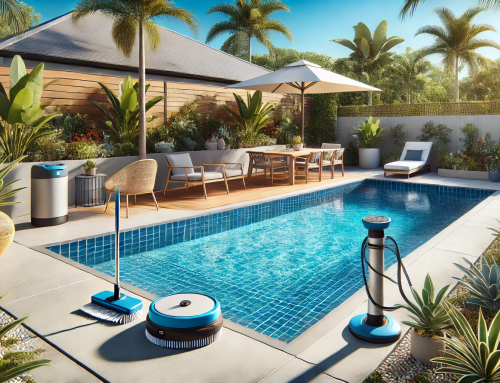Crystal-clear water might look safe—but when it comes to pool health, appearances can be deceiving. A sparkling pool doesn’t always mean a healthy one. In fact, water that looks perfectly clean could still be home to invisible contaminants and in-balanced swimming pool water chemistry that pose risks to both swimmers and your pool’s surfaces.
At Atlantis Pools in North Lakes, we help local families—from Griffin and Mango Hill to Redcliffe and Burpengary—understand what’s really going on below the surface or under cover.
“Good pool chemistry isn’t just about looks—it’s about health and safety,” says Kylie Rojahn, owner of Atlantis Pools. “Your pool water might be crystal clear, but if the chemistry is off, you’re only one step away from algae, bacteria, or eye and skin irritation.”
Why Proper Pool Chemistry Matters
Your swimming pool is a delicate balance of water, chemicals, and equipment. When everything is in sync, it’s a safe and enjoyable place for the whole family. But without consistent water treatment, even the cleanest-looking pool can quickly turn into a breeding ground for:
-
Algae
-
Bacteria
-
Viruses
-
Body oils, sunscreen and waste from swimmers
These contaminants are often invisible to the naked eye, which is why routine testing and treatment is critical—especially in our warm Queensland climate, where bacteria and algae thrive.
Sanitiser: Your First Line of Defence
The only thing standing between your pool and a green swamp is your sanitiser—usually chlorine or a chlorine-based product. Sanitiser keeps your pool water free of harmful microorganisms by neutralising them before they can multiply.
“We often see pools where chlorine levels have dropped, even though the water still looks clear is the first step before the pool becomes cloudy or even green overnight.,” Kylie explains. “But without that chemical protection, things can go wrong very quickly—especially after storms, heavy use, or warm days.”
Common Factors That Reduce Chlorine Levels:
-
Direct sunlight
-
Rain and stormwater runoff
-
Organic matter like leaves and dirt
-
Swimmer waste such as sweat, sunscreen, body oils and even your pet dog.
That’s why it’s so important to test and adjust chlorine levels regularly, and why we encourage our customers to bring in their water for testing every two to three weeks—even in winter.
pH: The Partner to Chlorine
While chlorine does the heavy lifting, it’s your pool’s pH level that ensures it works effectively. If your pH is too high or too low, chlorine becomes less efficient—and your pool may experience issues like:
-
Skin and eye irritation
-
Cloudy water
-
Scaling or corrosion of pool surfaces and equipment
The ideal pH level for a swimming pool is between 7.2 and 7.6—which also happens to match the natural pH of the human body.
“When pH is balanced, chlorine is more powerful, swimmers are more comfortable, and your pool equipment lasts longer,” Kylie says. “It’s a simple adjustment that has a big impact.”
The Importance of Regular Testing
You wouldn’t drink water that hasn’t been filtered, treated, or tested—so why swim in it?
Whether you’re using a home test kit or relying on our in-store professional testing service, staying on top of your pool’s chemistry is the best way to protect your backyard assets and your family’s health. Remember swimming pool water is for swimming for people not mosquitoes!
We recommend checking:
-
Chlorine levels at least once a week
-
pH levels weekly
-
Alkalinity, calcium hardness, and stabiliser (cyanuric acid) every few weeks
-
Full professional water test every 4 weeks, summer or winter for Queenslanders and especially after heavy use or storm
Trust Atlantis Pools for Expert Advice
We understand pool chemistry, and we’re here to help you every step of the way. Bring a fresh water sample (within 20 minutes of collection) in an approved container, and our team will run a free, in-depth analysis using lastest updated, innovative technological advanced equipment.
“Our goal is to take the guesswork out of water chemistry,” says Kylie. “We’ll show you exactly what your water needs, and how to treat it properly—no guesswork, no unnecessary chemicals.”
Need help balancing your pool water? Drop into Atlantis Pools for a free water test and expert advice. Let’s keep your pool clear, clean, and safe—year-round.
📞 (07) 3491 9700
📧 atlantispoolshop@bigpond.com
🌐 www.atlantispoolshop.com.au
